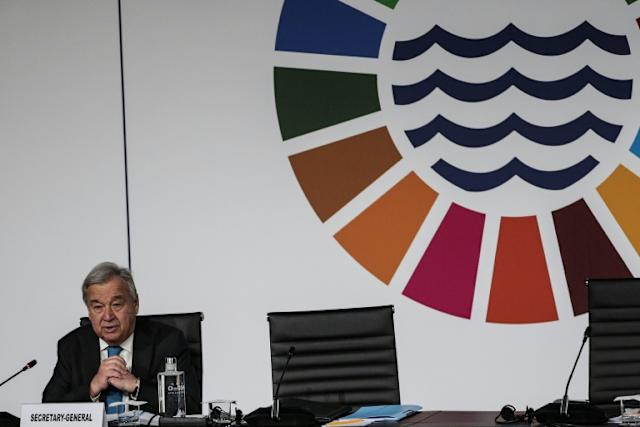Although the landmark High Seas Treaty will not come into force before the UN Oceans Conference in June, determined efforts by member states are steadily advancing its progress towards implementation.
Adopted in June 2023 after years of arduous negotiations, the treaty seeks to safeguard marine ecosystems critical to humanity, but increasingly endangered by pollution in waters beyond national jurisdictions.
While 113 countries have signed the agreement, only 21 have ratified it so far.
Following two weeks of United Nations meetings in New York — notably without participation from the United States — negotiators have taken “one step closer to shaping the institutional backbone” of the agreement, according to Nichola Clark from the Pew Charitable Trusts. These discussions marked the first preparatory commission for the treaty’s eventual activation.
Under current rules, the treaty can only take effect 120 days after 60 ratifications are secured, meaning it cannot be enacted before the UN Oceans Conference scheduled for 9–13 June in Nice, France.
Nonetheless, experts remain hopeful that the necessary threshold will be reached by June, allowing the treaty to come into effect later this year.
The Nice summit, which will host dozens of heads of state, will be preceded by a major scientific conference bringing together 2,000 researchers from nearly 100 countries. A special ceremony on 9 June will provide “a unique opportunity to reaffirm our collective political commitment” to the treaty, according to Sandrine Barbier, head of the French delegation.
Signs of growing momentum were evident at the preparatory commission, where discussions advanced more swiftly than anticipated, including progress on establishing a system for information sharing between signatory states.

Rebecca Hubbard, director of the High Seas Alliance, described a palpable sense of optimism during the preparatory meetings, telling AFP there was “a lot of love in the room” for the treaty, which she hailed as “one of our best opportunities to deliver action to protect the ocean.”
Pew’s Nichola Clark added that “exciting progress and movement” had been made, particularly around the creation of marine protected areas, a key feature of the agreement.
However, enthusiasm was tempered by the absence of the United States, which signed the treaty during President Joe Biden’s administration but has yet to ratify it.
Additionally, a controversial move by former President Donald Trump further clouded the outlook. On Thursday, Trump issued an executive order paving the way for commercial extraction of rare earth minerals from the ocean floor, including areas of international waters outside the jurisdiction of the International Seabed Authority, an organisation the US has not joined.
Environmental groups reacted strongly. Arlo Hemphill of Greenpeace USA condemned Trump’s order as “an insult to multilateralism and a slap in the face to all the countries and millions of people around the world who oppose this dangerous industry.”
“This is a clear sign that the US will no longer be a global leader on protecting the oceans, which support all life on this planet,” Hemphill said.
Global governments have pledged to protect 30 percent of the world’s land and oceans by 2030, a target the High Seas Treaty is seen as critical to achieving.




